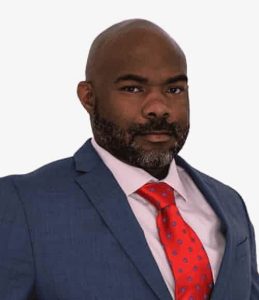You’ll identify a qualified mental health expert by verifying their CACREP-accredited master’s or doctoral degree, confirming 2,000-3,000 hours of supervised clinical experience with at least 1,200 direct client contact hours, and checking their current state licensure through official board listings. Guarantee they’ve completed required examinations and maintain active continuing education credits. Licensed professionals must display proper credentials and practice within authorized settings under protected titles. Understanding these verification steps reveals additional critical factors that distinguish truly qualified practitioners.
Understanding Master’s and Doctoral Degree Requirements for Mental Health Professionals

While mental health professionals enter the field through various educational pathways, understanding the fundamental degree requirements serves as your foundation for identifying qualified experts. Master’s programs require 2–3 years of full-time study in psychology, counseling, or social work, including 600–1000 supervised practicum hours and core coursework in human development, ethics, and assessment methods.
Doctoral degrees (PhD, PsyD, EdD) demand 90–140 graduate credits over 4–8 years, with extensive research components culminating in dissertations. You’ll find degree specialization options vary substantially across programs, affecting clinical focus areas and career trajectories. Some doctoral programs require 100 quarter credits and focus specifically on preparing graduates to teach and train future mental health counselors. For PsyD programs specifically, candidates must hold a post-master’s degree before admission, ensuring advanced foundational knowledge before entering doctoral-level clinical training. Practicum scheduling becomes increasingly complex at the doctoral level, requiring thousands of supervised hours through multiple placements and full-time internships before licensure eligibility. Additionally, many programs now offer hybrid options that combine online coursework with in-person clinical training to provide greater flexibility for working professionals.
Evaluating Accredited Educational Programs and Required Coursework Content
Once you’ve grasped the foundational degree requirements, accreditation status becomes your most reliable indicator of program quality and legitimacy. You’ll want to verify that your prospective mental health professional graduated from a CACREP-accredited program, as state licensing boards routinely require this credential. Check program accreditation timelines to guarantee the degree was earned while accreditation remained active, since expired accreditation can affect graduate eligibility. Remember that post-master’s certificate programs are typically not CACREP-accredited, which may impact their recognition for certain licensing pathways.
Examine the curriculum content closely. Quality programs require 60 semester hours covering clinical diagnosis, assessment, treatment planning, counseling theories, and multicultural counseling. Each content area must be addressed through distinct courses without duplication. Consider specialty area eligibility as well programs focusing on clinical mental health, addictions, or school counseling may have different curriculum emphases that align with your specific therapeutic needs. The 2024 standards promote program excellence by establishing unified requirements across the counseling profession. Additionally, verify that your mental health professional completed supervised field experience as part of their clinical training requirements.
Verifying Supervised Clinical Training and Minimum Client Contact Hours

Moving beyond academic credentials, you’ll need to drill down into your prospective therapist’s supervised clinical experience to validate they’ve completed state-mandated training requirements. Most states require 2,000–3,000 supervised hours, including at least 1,200 direct client contact hours. Hourly verification procedures involve detailed logs signed by both supervisee and supervisor, with licensing boards conducting random audits to corroborate authenticity. When evaluating credentials, confirm their supervisor held an unrestricted license for minimum two years and completed required supervision training. Supervisor qualification checks should verify the supervisor wasn’t a relative or former therapist of the candidate. Documentation must demonstrate compliance with minimum 100 hours direct supervision and completion within regulated timeframes, typically 24–36 months full-time. A supervision contract should have been signed before the supervision commenced to establish clear expectations and responsibilities. Additionally, verify that practitioners have accumulated the required 4,000 hours of experience in mental health services before they can work independently. This supervised training structure allows therapists to learn by doing while ensuring client safety through experienced oversight.
Recognizing the Importance of 3,000 Hours of Post-Degree Supervised Experience
The 3,000-hour post-degree supervised experience requirement represents a critical benchmark in mental health licensure that you’ll encounter across most U.S. states when examining a therapist’s qualifications. When applying 3000 hour requirement standards, you’re ensuring the clinician has completed at least 1,500 hours of direct client contact alongside indirect clinical activities under qualified supervision. This mandated 24-month minimum duration prevents expedited accumulation, guaranteeing thorough skill development.
You should verify that supervision occurred with licensed professionals who provided weekly oversight and documented progress appropriately. When evaluating supervised experience impacts, you’re determining whether the clinician gained exposure to diverse disorders, developed professional identity, and demonstrated competency in real clinical environments. The supervised experience must occur in authorized settings such as hospitals, clinics under Article 28, or professional partnerships providing mental health counseling services. Additionally, you should confirm that no single supervisor oversaw more than five permit holders simultaneously, as this limitation ensures adequate individual attention and supervision quality. For nationally certified counselors, a minimum of 100 hours of postgraduate supervision is specifically required to meet NCC certification standards. This requirement ultimately protects public safety by confirming practitioners have proven proficiency under expert guidance before independent practice.
Navigating State Licensure Requirements and Legal Practice Titles

When evaluating a mental health professional’s credentials, you must verify their licensure through the appropriate state board that governs their specific discipline and practice area. Each state maintains designated boards that regulate protected titles like LPC, LMHC, and LCSW, ensuring only qualified individuals can legally use these designations. You’ll find official state board listings provide public verification of current licensure status and any disciplinary actions.
Understanding state reciprocity practices becomes essential if you’re considering a provider licensed in another jurisdiction, as experience and credentials don’t automatically transfer between states. Additionally, examine whether the professional maintains current standing through proper license renewal requirements, including mandatory continuing education credits. The typical licensure pathway involves completing a master’s degree, obtaining supervised clinical experience, passing required examinations, and submitting applications to the state licensing board. Unlicensed practice or misuse of protected titles carries legal penalties, making verification through official state boards your most reliable method for confirming legitimate credentials. If you encounter access restrictions when trying to verify credentials through online state board databases, try accessing the verification system at a later time as high traffic volumes can temporarily affect system availability.
Understanding National Certification Standards and Advanced Credentials
When you’re evaluating mental health professionals, understanding national certification standards provides essential insight into their competency and specialized training beyond basic licensure requirements. The National Certified Counselor (NCC) credential from NBCC requires a graduate degree in counseling, supervised clinical experience, and successful completion of the National Counselor Examination, establishing a baseline standard for professional practice. You’ll find that advanced credentials like the Certified Clinical Mental Health Counselor (CCMHC) build upon NCC prerequisites, requiring additional clinical experience and specialized competency demonstration to validate higher-level expertise in mental health treatment. For psychiatric-mental health nurse practitioners, the PMHNP-BC credential demonstrates board certification that aligns with national regulatory standards and requires renewal every five years to maintain current competency. These certifications also provide protection through an enforceable Code of Ethics, ensuring practitioners maintain professional conduct standards throughout their careers.
NCC Prerequisite Requirements
Although National Certified Counselor (NCC) certification represents a voluntary credential rather than a license to practice, it establishes rigorous national standards that you’ll need to meet across four distinct areas: educational prerequisites, examination requirements, postgraduate experience, and ethical compliance. The degree prerequisites require a master’s or higher in counseling from regionally accredited or CACREP-accredited programs, encompassing 48 semester hours across nine mandatory content areas, including human development, ethics, and assessment. You’ll complete at least six semester hours of supervised field experience through practicum or internship. Post-graduation, supervision requirements mandate 3,000 hours of counseling experience over 24 months, plus 100 hours of documented supervision. You must pass either the NCE or NCMHCE examination and maintain adherence to NBCC ethical standards throughout your certification period.
CCMHC Advanced Standards
Beyond the foundational NCC credential, the Certified Clinical Mental Health Counselor (CCMHC) certification represents the profession’s most rigorous advanced standard for independent clinical practice. You’ll find CCMHC-credentialed counselors have completed extensive graduate coursework, including clinical diagnosis, advanced therapeutic skills, and specialized training in family counseling, addiction treatment, or trauma intervention. The rigor of curriculum requires minimum 60 semester hours plus thorough supervised clinical experience totaling at least nine credit hours of direct client service.
CCMHC certification demands demonstrated multicultural competence across diverse populations and mental health conditions. Candidates must pass the specialized NCMHCE examination and maintain ongoing professional development requirements. This credential validates a counselor’s ability to provide independent clinical services, work within managed care systems, and adhere to the highest ethical and practice standards in mental health treatment.
Examining National and State Examination Requirements for Mental Health Counselors
Since mental health counseling requires specialized expertise to address complex psychological conditions, standardized examinations serve as critical gatekeepers to verify practitioners possess the necessary competencies before entering clinical practice. You’ll find that most states require passing either the National Counselor Examination (NCE) or National Clinical Mental Health Counselor Examination (NCMHCE), both administered by the National Board for Certified Counselors. The NCMHCE specifically tests clinical problem-solving through real-life counseling scenarios and is offered twice yearly at Pearson VUE centers.
Beyond meeting national exam eligibility requirements, you should understand that many states implement additional jurisprudence or ethics examinations. Once licensed, post licensure renewal requirements typically mandate continuing education to maintain current competencies and safeguard ongoing professional development throughout your career.
Confirming Professional Endorsements and Ethical Standards Compliance
When evaluating mental health professionals, you’ll need to verify they’ve obtained proper professional endorsements from qualified colleagues who aren’t related to them and hold master’s degrees or higher in mental health fields. You must also confirm their adherence to national ethics codes, which typically requires at least 30 hours of ethics-specific training and ongoing commitment to professional boundaries and confidentiality standards. Additionally, you should examine their character background verification through documented processes like fingerprint-based screenings and reference checks from supervisors, employers, or academic mentors.
Professional Endorsement Requirements
Professional endorsements serve as a critical gatekeeping mechanism in mental health credentialing, requiring candidates to secure formal verification of their competence and ethical standing from qualified colleagues. When evaluating a mental health professional’s credentials, you’ll want to understand the rigorous endorsement application process they’ve navigated. Endorsers must hold graduate degrees in recognized mental health fields and cannot be relatives, supervisors, or subordinates of applicants. The endorsement verification procedures guarantee independent assessment beyond transcripts and exam scores. Certifying bodies like NCC and CCMHC mandate these endorsements for major credentials, with endorsers directly submitting current documentation through official channels. State licensing boards often specify additional requirements, such as minimum licensure years for endorsers, making professional endorsements a robust indicator of a practitioner’s qualifications.
Ethics Code Adherence
Beyond securing professional endorsements, verifying a mental health practitioner’s adherence to established ethics codes provides concrete evidence of their commitment to professional standards and client protection. You can confirm membership in recognized organizations like APA or ACA through public directories, which validates adoption of enforceable ethical standards. Look for evidence-based ethics training documentation, including continuing education certificates and formal coursework completion. Qualified practitioners demonstrate systematic confidentiality protocols, informed consent procedures, and evidence-based interventions. Their licenses should show an active, unrestricted status through state regulatory boards that conduct routine ethics reviews. Practitioners utilizing ethical decision-making frameworks typically engage in peer consultation, maintain transparent complaint procedures, and participate in ongoing case reviews that demonstrate accountability to professional oversight mechanisms.
Character Background Verification
Detailed character background verification serves as the foundational layer for confirming both professional endorsements and ethical standards compliance in mental health practitioners. You’ll need to verify credential integrity through thorough identity authentication using government-issued documentation, Social Security verification, and biometric data protocols. National verification protocols require screening against federal exclusion lists, state abuse registries, and professional disciplinary databases to identify any sanctions or patient harm risks.
Reference verification involves structured interviews with former supervisors to assess ethical behaviors and professional standards compliance. You should confirm licensing validity through state registries, verify employment history, and examine professional association memberships. Cross-checking education credentials, continuing education documentation, and letters of recommendation guarantees authentic professional endorsements while maintaining ongoing eligibility screening for clinical practice compliance.
Assessing Continuing Education Commitments and Professional Development
How can you determine whether a mental health professional maintains genuine commitment to ongoing professional development beyond basic regulatory compliance? Look for practitioners who consistently exceed minimum CE requirements, accumulating 50-60 hours annually when states mandate only 30-40 hours per renewal period. Verify their participation in national conferences, advanced certifications, and specialized training programs from accredited providers like universities or professional associations.
Examine whether they’re pursuing specialized training in evidence-based treatment modalities, emerging research, or specific client populations. Strong candidates maintain detailed documentation of their educational activities and can discuss recent learnings that directly impact their practice. You’ll also find they engage in peer consultation groups, supervision relationships, or research collaborations that demonstrate commitment to field advancement beyond statutory minimums.
Verifying Authorized Practice Settings and Professional Title Usage
You must verify that mental health professionals use only the specific titles authorized by their current licensure status, as misrepresentation of credentials constitutes a regulatory violation. State licensing boards maintain strict requirements regarding where licensed practitioners can provide services, with associates and supervised professionals restricted to board-approved supervisory environments. Cross-reference the practitioner’s claimed credentials against official state licensing databases to confirm their title usage aligns with their actual certification level and practice authorization.
Legal Title Verification
Before engaging any mental health professional’s services, verifying their legal authorization to use specific titles represents a critical first step in protecting yourself from unqualified practitioners. You can access state licensing board databases to confirm license status, expiration dates, and any title disciplinary actions against the provider. Most jurisdictions offer online verification systems that display license numbers, issuance dates, and public sanctions.
Professional titles like “Psychologist” or “Licensed Clinical Social Worker” require specific education and examination standards. Using these titles without proper licensure constitutes illegal practice in most states. When relocating providers claim credentials, investigate license portability requirements between states. Cross-reference claimed titles against verified qualifications; doctoral-level titles require documented proof of appropriate degrees and clinical training from accredited institutions.
Authorized Practice Locations
Beyond confirming individual credentials, you must verify that mental health professionals operate within legally authorized practice settings that match their specific licensing requirements. State licensing directories provide thorough verification of facility accreditation and operational authority for psychiatric facilities, rehabilitation centers, and outpatient clinics.
Professional practice authorization varies considerably by setting type:
- Facility licensing verification – Search official state health department directories to confirm legitimate operational status
- Scope limitations – Guarantee practitioners work only within settings matching their license type and specialization
- Telehealth authorization – Verify remote practice licensing in both provider’s home state and your location
- Accreditation display – Look for visible licensing certificates and facility accreditation documentation
- Complaint records – Review public licensing data for violations affecting current authorization status
This verification protects you from unqualified practitioners operating outside their legal authority.
Frequently Asked Questions
How Can I Verify if a Mental Health Professional’s Credentials Are Current and Valid?
You can verify credentials by accessing your state’s licensing board online database to review professional registries and confirm licensing information. Search by the clinician’s name or license number to check active status, expiration dates, and any disciplinary actions. Cross-reference their credential details, educational background, and CE compliance. Don’t rely solely on private directories; always use official state board records for accurate verification and fraud prevention.
What Should I Do if I Suspect My Counselor Is Practicing Without Proper Licensing?
You should immediately discontinue services and report suspicious activity to your state’s mental health licensing board with documented evidence, including business cards, receipts, and session details. Contact the board in writing, providing specific observations about credential claims and practice behaviors. Simultaneously, you’ll need to seek an alternative provider who displays proper licensing credentials. Consider consulting law enforcement if fraud’s involved, and document everything for potential legal proceedings or complaints.
Are Online Therapy Platforms Required to Use Only Licensed Mental Health Professionals?
Yes, online therapy platform requirements mandate licensed professionals for therapeutic services. Major platforms like BetterHelp and Talkspace require state licensure (LPC, LCSW, LMFT, psychologist) matching your location. Licensed professional criteria include master’s/doctorate degrees, 2,000-4,000 supervised clinical hours, and passing state exams. However, platforms offering coaching or peer support, not therapy, may use non-licensed staff. You should verify your provider’s credentials through state licensing boards before beginning treatment.
Can a Mental Health Counselor Practice Across State Lines With Their Current License?
You can’t automatically practice across state lines with your current license. Interstate compacts enable cross-state practice in participating states, but you must apply for compact privileges; it’s not automatic. Currently, 37 states participate in the Counseling Compact, allowing telehealth and in-person services. You’ll need independent licensure (no supervision required) and must meet telehealth regulations and licensing reciprocity requirements. Non-compact states require separate license applications with state-specific standards.
How Do I File a Complaint About a Licensed Counselor’s Unethical Behavior?
To report unethical conduct, you’ll contact your state’s licensing board and file a formal grievance using their official complaint form. You must submit detailed documentation in writing, including supporting evidence like emails or texts. The board assigns a case number, conducts an investigation, and may impose disciplinary actions ranging from probation to license revocation. You should retain copies of all submitted materials and clearly cite specific ethical violations to strengthen your complaint’s validity.







